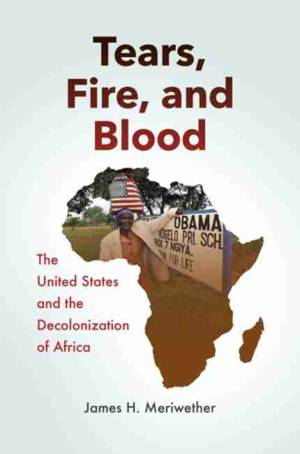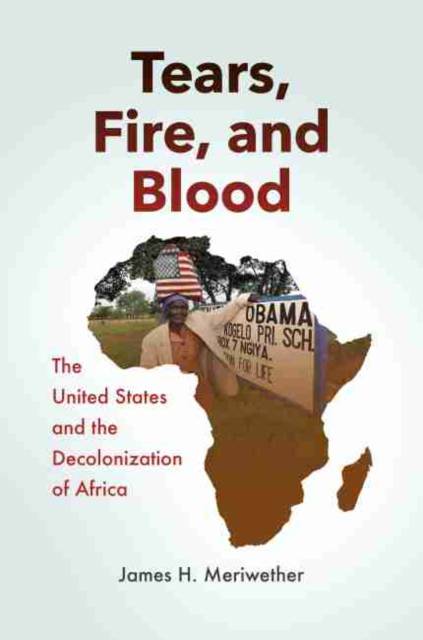
- Afhalen na 1 uur in een winkel met voorraad
- Gratis thuislevering in België vanaf € 30
- Ruim aanbod met 7 miljoen producten
- Afhalen na 1 uur in een winkel met voorraad
- Gratis thuislevering in België vanaf € 30
- Ruim aanbod met 7 miljoen producten
Zoeken
Tears, Fire, and Blood
The United States and the Decolonization of Africa
James H Meriwether
Paperback | Engels
€ 49,95
+ 99 punten
Uitvoering
Omschrijving
In the mid-twentieth century, the struggle against colonial rule fundamentally reshaped the world and the lives of the majority of the world's population. Decolonization, Black and Brown freedom movements, the establishment of the United Nations and NATO, an exploding Cold War, a burgeoning world human rights movement, all became part of the dramatic events that swept through Africa at a furious pace, with fifty nations gaining independence in roughly fifty years. Meanwhile, the United States emerged as the most powerful and influential nation in the world, with the ability--politically, economically, militarily--and principles to help or hinder the transformation of the African continent.
Tears, Fire, and Blood offers a sweeping history of how the United States responded to decolonization in Africa. James H. Meriwether explores how Washington, grappling with national security interests and racial prejudices, veered between strengthening African nationalist movements seeking majority rule and independence and bolstering anticommunist European allies seeking to maintain white rule. Events in Africa helped propel the Black freedom struggle around the world and ultimately forced the United States to confront its support for national ideals abroad as it fought over how to achieve equality at home.
Tears, Fire, and Blood offers a sweeping history of how the United States responded to decolonization in Africa. James H. Meriwether explores how Washington, grappling with national security interests and racial prejudices, veered between strengthening African nationalist movements seeking majority rule and independence and bolstering anticommunist European allies seeking to maintain white rule. Events in Africa helped propel the Black freedom struggle around the world and ultimately forced the United States to confront its support for national ideals abroad as it fought over how to achieve equality at home.
Specificaties
Betrokkenen
- Auteur(s):
- Uitgeverij:
Inhoud
- Aantal bladzijden:
- 320
- Taal:
- Engels
Eigenschappen
- Productcode (EAN):
- 9781469664224
- Verschijningsdatum:
- 9/11/2021
- Uitvoering:
- Paperback
- Formaat:
- Trade paperback (VS)
- Afmetingen:
- 156 mm x 234 mm
- Gewicht:
- 485 g

Alleen bij Standaard Boekhandel
+ 99 punten op je klantenkaart van Standaard Boekhandel
Beoordelingen
We publiceren alleen reviews die voldoen aan de voorwaarden voor reviews. Bekijk onze voorwaarden voor reviews.











